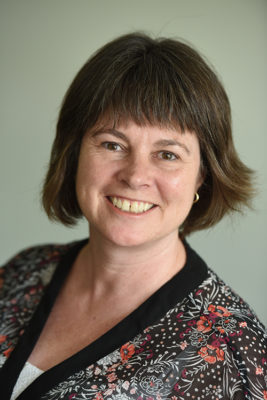 Professor, Department of Political Studies, University of Saskatchewan
Professor, Department of Political Studies, University of Saskatchewan
The Japan Foundation, through its various programs (fellowships, Japan Studies Association of Canada conference support, and special project funds), has been a central element in my professional development and scholarly success. I know that this applies to scholars across Canada and around the world. Never underestimate the impact that these grants and support programs have on academics interested in Japan.
Dr. Holroyd is a two-time recipient of the Japan Foundation fellowship. Her 2010 fellowship took her to Kyoto and Tokyo; she was based in Tokyo for the 2020 fellowship.
The 2010 fellowship focused on Japan’s efforts to promote and develop environmental technologies. The fellowship kickstarted my work on this project, which led directly to the publication of numerous articles, conference papers and a sole-authored book, Green Japan: Environmental Technologies, Innovation Policy, and the Pursuit of Green Growth (University of Toronto Press 2018). These publications and professional work would not have been possible without the initial Japan Foundation support, which led directly to the securing of a major Social Sciences and Humanities Research Council of Canada [research fellowship] to continue the study.
The 2020 fellowship focused on Japan’s “Society 5.0,” the nation’s strategy for the “super smart” society based on the mobilization of emerging digital technologies. I returned from the fellowship on 3 March 2020. My first scholarly article from this project was accepted for publication in April 2020. The interviews and experience in Japan heightened my interest in Japan 5.0 and have convinced me to expand the study.
Dr. Holroyd is a respected and well-known figure of Japanese Studies in Canada. She is recognized not only for contributing to the field of Japanese Studies but also for her leadership within the scholarly community.
The support I have received from the Japan Foundation has been instrumental in supporting and encouraging my scholarly work on Japan, for which I am extremely grateful.
The Japan Foundation grants have been critical in my career. They funded exploratory research that I was able to convert into articles, reports, book chapters and books. My presentations at numerous academic and professional conferences solidified my reputation as a Japan scholar, culminating in my appointment as a Professor of Political Studies in 2020. I was elected as President of the Japan Studies Association of Canada in 2016 and was re-elected, by acclamation, in October 2019. The support I have received from the Japan Foundation has been instrumental in supporting and encouraging my scholarly work on Japan, for which I am extremely grateful.
The Japan Foundation, through its various programs (fellowships, Japan Studies Association of Canada conference support, and special project funds), has been a central element in my professional development and scholarly success. I know that this applies to scholars across Canada and around the world. Never underestimate the impact that these grants and support programs have on academics interested in Japan.
Her time in Japan was also the source of fond personal memories.
I was in Kyoto in December 2010 with my family. It started snowing on New Year’s Eve, and we had an absolutely magical night. We walked in the heavy snow to a nearby temple in the evening and all took turns ringing the bells at midnight. [This] remains a family highlight and a wonderful memory of our time in Kyoto.
Dr. Holroyd’s time as a Fellow in Japan has led to extensive publications, including a new book set to be released in Fall of 2020.
I capitalized on the insights from my Japan Foundation fellowships to complete a large number of academic articles, conference papers and book chapters. Two major projects stand out from this substantial list of professional activities. My book Green Japan: Environmental Technologies, Innovation Policy, and the Pursuit of Green Growth (University of Toronto Press, 2018) provided a comprehensive overview of Japan’s efforts to combine national innovation and environmental priorities and the potential of “green growth.” I am very proud of this work.
Beginning with the first fellowship and continuing through to 2020, I have been interested in Japan’s evolving position within East Asia. My curiosity about these processes led to being commissioned by Routledge Press to write a textbook on the political economy of East Asia. During my January to March 2020 stay in Japan, I was able to test — on the ground and in person — many of my conclusions about Japan’s role in the development of East Asia. I submitted the final manuscript in April 2020 and look forward to seeing the book published in Fall 2020.

 Professor, Department of Political Studies, University of Saskatchewan
Professor, Department of Political Studies, University of Saskatchewan